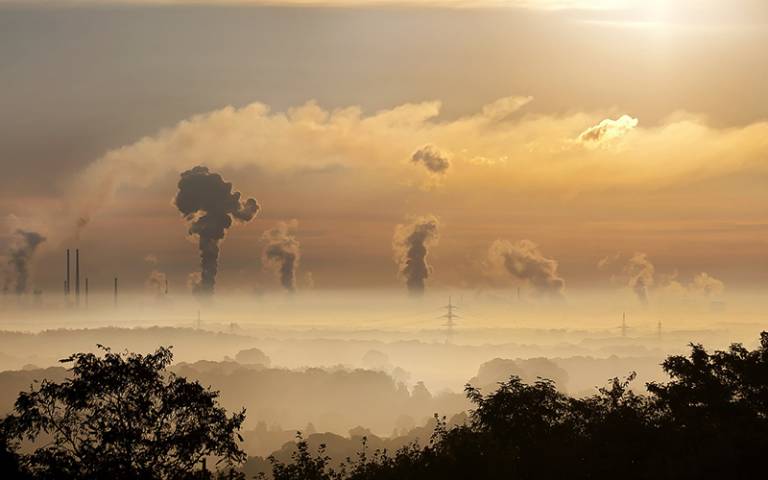A resource-efficient pathway towards a greenhouse gas-neutral Germany
21 February 2019, 5:30 pm–7:00 pm

Event Information
Open to
- All
Availability
- Yes
Organiser
-
UCL ISR
Location
-
G01Central House14 Upper Woburn PlaceLondonWC1H 0NN
Until 2050 Germany could abate its GHG emissions by 95% and lower its raw material consumption (RMC) by almost 60%.
This is shown in the “GreenEe” Scenario of the German Federal Environment Agency (UBA). This is the first study addressing in a systemic approach climate mitigation and resource efficiency on a regional and global scale.
Future energy-systems are based on renewable energy carriers (100% REN).
The implementation and maintaining of the needed technologies comes with various synergies and trade-offs. For instance, increasing efficiency leads to less material use, this lowering energy demands – in the same time building up a low-carbon system creates increasing demand for materials (e.g. copper) and resources (e.g. land).
Mutual dependencies and feedback between resource conservation and climate protection require a systemic approach. This nexus of climate mitigation + resources use + energy supply is studied between 2010 and 2050 for Germany and also on a global scale. The study looks into foreseeable problems, solutions and routes transforming an industrialized country towards a greenhouse gas neutral and resource efficient society (e.g. copper availability or “power to liquid” in aviation).
The study also demonstrates that systemic and ambitious climate mitigation and resource efficiency policies are needed to achieve the goals. The study is the first of a set of scenarios showing different pathways into the future.
About the speaker
Harry Lehmann, General Director, Environmental Planning and Sustainability Strategies, Federal Environment Agency (UBA), Germany
Since 2004, physicist Dr. Harry Lehmann is head of the division “Environmental Planning and Sustainability Strategies” of the German Federal Environment Agency. After working in the field of fundamental research in physics, he founded and owned 1984 the Engineering Consultancy “UHL Data” for systems analysis and simulation in the field of energy and environment. From 1990 until 1999 he was at the Wuppertal Institute for Climate, Environment and Energy. Then he founded and was Director of the Institute for Sustainable Solutions and Innovations, at that time he was also Director of Greenpeace International “Solutions Unit”. He was an early member of the Factor 10 Club for resource productivity and sustainable use of natural resources and is now the president of it. He is one of the founders of Eurosolar and was there the vice president from 2000 to 2006. Since 2011 he is executive Chairman of the World Renewable Energy Council and since 2014, he is a Board Member of the World Resources Association (WRFA). Since 1985, Harry Lehmann has been lecturer - amongst others - at the University of Luneburg.
 Close
Close

